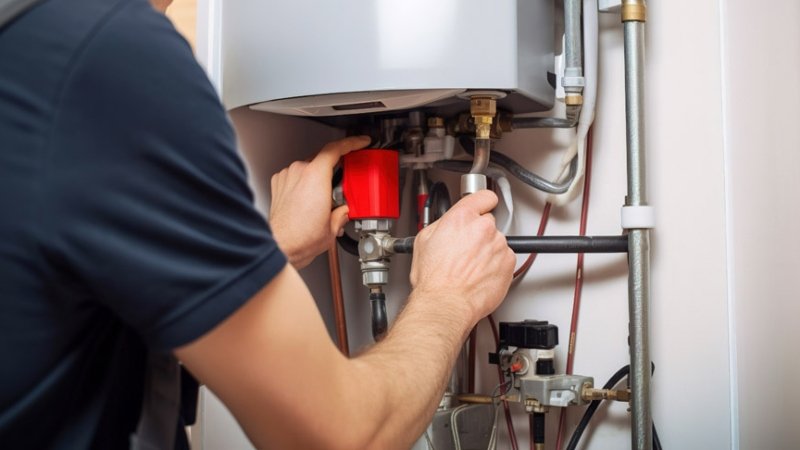Nothing is worse than waking up on a cold winter morning and finding out your heater is not working. People in Phoenix usually get in a rush and go for a full replacement without weighing all available options first. A new system will cost thousands, and it may not always be the right solution every time. This article provides a clear direction through which readers can assess a heater’s condition to find out whether it is better to repair or replace it.
Identify the Real Problem
For air heating repair in Phoenix, calling an expert should be the first thing to do. A professional will identify the real cause of the appliance failure. A number of causes appear big but are actually quite minor, such as a clogged air filter, a malfunctioning thermostat, and problems with ignition. All these can be fixed for a much lower amount than the cost of replacement. This can save unnecessary costs and prevent you from replacing the whole system.
A licensed technician in Phoenix would start with a thorough check: checking air flow, testing the safety controls, and observing unusual odors or noises. Such symptoms could mean something that is simple to fix and not a complete teardown. Asking these questions is important: Is the unit more than 15 years old? Has regular service been skipped? Are repair records available? These details help verify if there is still life left in the system.
Check Major Components for Safety and Performance
During this stage, the technician in Phoenix will focus on the most important parts of the heating system, including:
- Heat exchanger: Check for any holes and cracks that could leak hazardous combustion gases.
- Burners and ignition: The flame should be steady and blue, and not flickering orange or yellow.
- Blower and motor: Ensure they provide the right amount of air volume and operate with minimal vibration.
- Safety Controls: Sensors and shut-off devices should be tested to ensure proper operation and meet the latest code.
- Ductwork and vents: Check for blockages, leaks, or disconnected sections that will cause the heater to underperform.
Any major degradation in one of these locations may require replacement. Where the concerns are minor, repair can still be an option.
Understand System Age and Efficiency Metrics
The appliance’s age significantly contributes to the need for heater replacement. Generally, units older than 20 years are less efficient and usually lack the important features that would make them well-suited for modern standards. A full overview of efficiency numbers, running costs, and expected lifespan helps put the decision into context.
Newer systems have AFUE ratings of 90 % or better. If the existing system is well below today’s minimums, it may be of value for the owner to replace it. The technician should provide a cost analysis, including estimated remaining years, fuel savings with a new unit, and possible rebates through utility incentive programs in Phoenix.
Weigh Repair Cost Versus Replacement Cost
Rule of thumb: if repair costs exceed half the replacement cost, think about installing new equipment. The technician should provide:
- A clear quotation for the repairs.
- A quote for replacement, including installation, disposal, permits, and code updates.
- Anticipated operating cost differences between the two options in the Phoenix region.
Bullet list of key factors to assess:
- Change in system efficiency: Will the new model significantly reduce energy bills?
- Warranty duration: Does the current system still carry any remaining coverage?
- Repair frequency: Has this system required several visits already this season?
- Compatibility with ductwork: Will the existing ducts support new equipment without major changes?
- Future comfort and performance: will the occupant notice tangible benefit from a new system?
In this process, the homeowner is guided through these factors to achieve clarity, rather than being pressured into a sale.
When Repair Is Still a Better Option
Even in older equipment, the right thing to do may be to repair it. If the defect is in a replaceable component, like a fan motor, ignition module, or sensor, and all major structures are intact, extending service for several years may make sense. Opting for repair also avoids immediate disposal costs and allows time to plan a future system upgrade when funds and optimal equipment choices align.
When Replacement Makes Better Sense
Replacement claims the edge when there are safety compromises, the system is at the end of its life, repair costs go up repeatedly, or efficiency gains promise substantial savings. If a technician sees several failing parts along with unsealed ducts and outdated controls, a new installation in Phoenix is the most logical way to go. Newer units may boast improved home comfort and lower utility bills, besides offering smarter controls than an older system could.
Heater replacement is a big decision, but not one that must be done on impulse. It would be a very sound choice if its foundation is a clear inspection, cost comparison, and a check for safety. Whether it’s an air heating repair in Phoenix or replacement, the priority remains reliable comfort, efficient operation, and peace of mind. The right technician, when the time comes to take action, will direct a course forward with clarity and expertise. See Also: Peel & Stick Wallpapers for Bedrooms & Beyond
